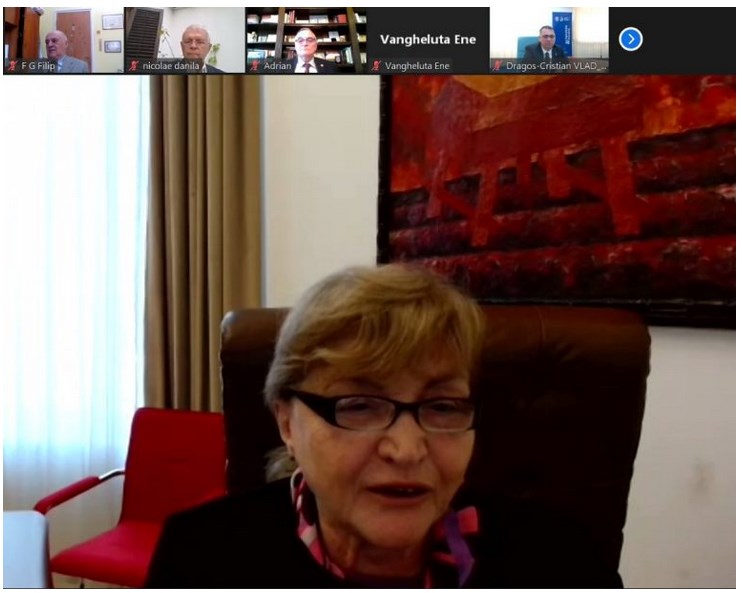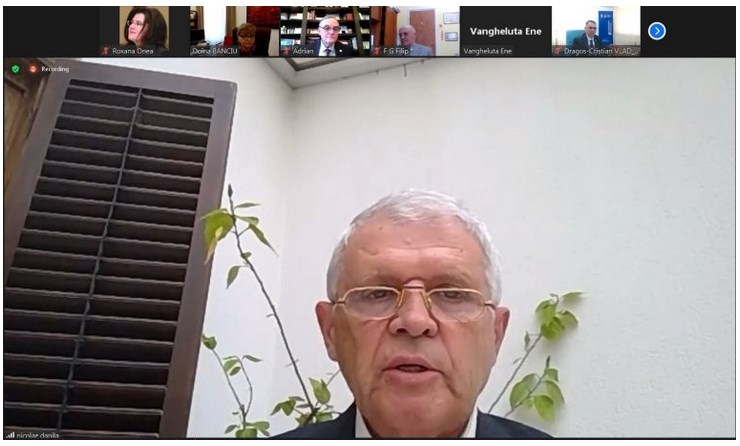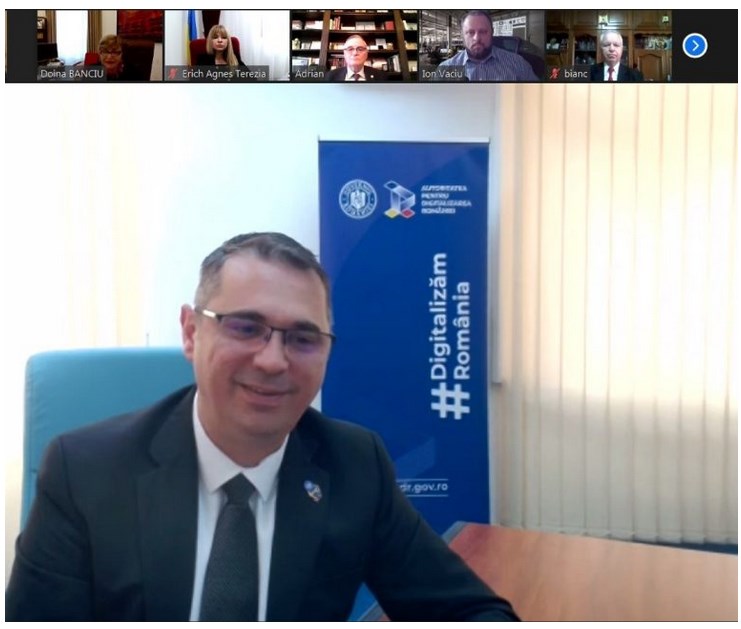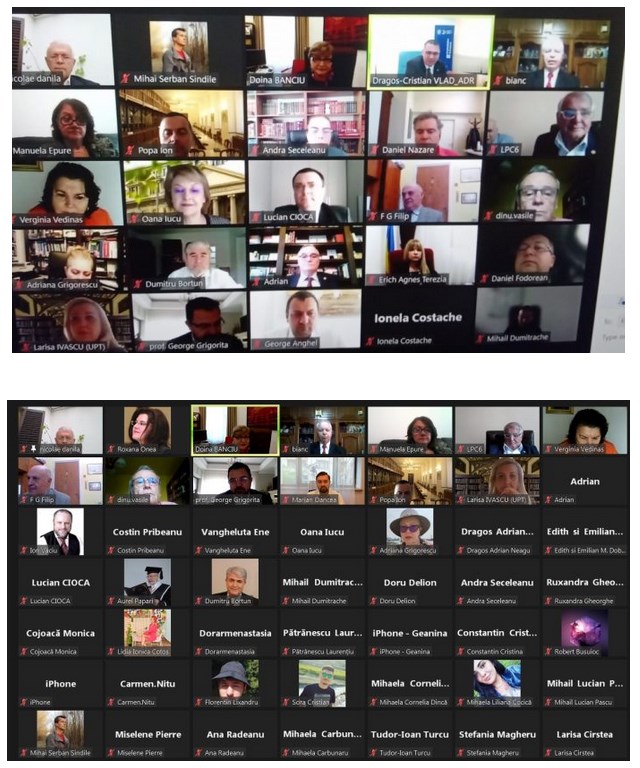Article published on the website www.comunic.ro
TRomania’s Digital Transformation is already a current of opinion that is beginning to be present both in the circles of specialists in the ICT industry, but also in academia and in the Romanian media, especially in the last two years. PNRR funds that allocate 20% for the development of digital technologies are accelerating this trend, but we need to see if Romania has the teams and specialists, projects and integrators that can access this PNRR of potential billions of euros. Otherwise, the money allocated by the European Commission and not used by Romania will be redistributed to the countries that will fully fulfill their national plans. The competition is fierce and the EU must thus become the most dynamic continent by 2030.
What is the global context in this regard? After the Digitization of the 50s and 60s of the last century, the Digitization of the 70s and 80s, also known as Automation, we are now in full stage of Digital Transformation globally, according to all studies, reports and documentations of specialists of large multinational ICT companies, but also professors and researchers at Harvard, Oxford, MIT, Stanford and other top 10 universities globally. In Romania, too, we are seeing incipient steps in the Direction of the Digital Transformation, the phenomenon focused on focusing in the direction of the human factor in organizations, rather than on technologies, a real transformation of management towards a new stage of the Digital Economy 4.0.
In this context, the more the program is to be watched Academy of Romanian Scientists (AOSR), which dedicated a special conference Digital Transformation of the Romanian public institutions , which had as special guest Dragoș-Cristian VLAD, the president of the Romanian Digitization Authority , together with a series of personalities from AOSR, university professors, academics, public library managers from all over the country and specialists in the field of high technologies. The conference was initiated and moderated by the vice -president of AOSR, prof. Univ. Dr. Danciu Banciu.
We present below a summary of the online event, stating that the entire conference can be watched in the video material in this article.
Conference with the theme “Digital Transformation of Public Institutions” , organized on April 28, 2022, by the Academy of Romanian Scientists – Department of Economic, Legal and Sociological Sciences and The “CONSTANTIN ANGELESCU” Institute for Advanced Interdisciplinary Research (ICAI) precedes the AOSR’s spring scientific conference, which will take place between May 6-7 and will deal with the phenomenon of Digital Transformation worldwide and nationally.

Prof. univ. Dr. Doina BANCIU – Vice President of the Academy of Romanian Scientists – initiator and moderator of the conference – “Digital transformation of society in the context of EU strategy “
The AOSR official emphasized the importance of Digital Transformation in public institutions in Romania, taking into account the evolution of the European context and the PNRR framework, with an emphasis on the development of public libraries that need to be digitized, digitized and digitally transformed. The detailed and documented presentation (with slides) of Doina Banciu is present in the film of the conference, being a useful material for the professionals in the field of Bibliology and Information Science.
“Issues related to digitization – digitization – digital transformation have not appeared in this decade, they have been in the attention of the European Commission since 2000-2005, when a series of very interesting plans were launched such as eEurope (this targeted the EC countries and specified strategic directions for the implementation of the information society). Then followed, for the countries that were to join the European Union, respectively for Romania and Bulgaria, the Europe + plan, which specified a series of actions, activities that the countries had to do to move to the implementation of the information society among the economies. respectively. Other plans follow, including the 2014 eEurope Digital Agenda for Europe, which set out the strategic points that any national strategy must address so that it can move towards a fair and coherent approach to society. The plans related to the Digital Agenda have been translated into digital strategies in each country and there was also such a strategy in Romania that was promoted at national level by the Ministry of Communications and Information Society at that time, with the participation of many specialists in public administration. . In 2021, Ursula van der Leyen launched the new European strategy, which must, in fact, represent the journey in the field of information technology in Europe, so as to move from digitization-digitization to digital transformation. The main pillars of this strategy are skills (citizens’ skills), infrastructure (infrastructure development), attention to the business environment (mainly SMEs). It is expected that more than 80% of Europe’s citizens will have skills in the field of information technology, the infrastructure will have extremely high connectivity, and more than 90% of SMEs will have at least basic skills and the necessary to use information technology. and three-quarters of large companies to be able to use cloud services, so practically to operate based on cloud-type IT structures.
The last pillar, but by no means the least important, is e-government, which also gave the title to this debate – The digital transformation of public institutions. The public administration needs to change its concepts and procedures in order to be able to implement and move towards digital transformation by 2030.
The workforce is relocated, professional nomads have appeared, who work for entities located even on other continents and who have a different approach to the existence of the administration. For them, an online interface with administrative procedures must be provided, not to mention that these professional nomads have countless online debates. The second important issue related to the labor force in the knowledge society is that the means of work are increasingly based on IT&C. There is talk of artificial intelligence, smart equipment, devices, practically everything that means competitive has an IT & C component. The object of work for most of the digital workers becomes mainly informational content, no matter what activity they carry out.
The digital transformation can mean a new social pact, in which research and innovation must have their place, which must be done not out of goodwill and passion. Passion must be just an engine, and the administration must support research and innovation for the benefit of society as a whole. Then I mention the extremely important role of teachers. Teachers and education in general for the 3 levels we have shown must be a permanent element present in the digital transformation of society because including digital ethics – education and pedagogical skills combined with digital must be an important pillar of digital transformation . Otherwise we cannot discuss the achievement of the pillars of the European strategy.
If we are talking about SMEs, large and small companies, that accept digital transformation, there must be managers with a managerial vision who can transform their procedures based on knowledge management, who understand that it is much easier, convenient and efficient. to keep your information in a digital, cloud-like structure, whose security, safety, communication is handled by specialists other than those in the company you run. Whether we are talking about private or public administration companies, staff need to be motivated and accountable in a way that is not only financial but also well-constructed, well-designed and consistent.
I believe that the authorities need to create the legal and institutional framework to support the digital transformation, take into account the vulnerabilities of cybersecurity and information manipulation. I believe that this complex research – education – managerial visions – motivated staff – legislation actually means a new social pact, a new systemic approach such as authorities, decision makers and the categories mentioned above. ”

Prof. univ. dr. eng. Adrian BADEA, President of AOSR
“We live in a knowledge-based society, and I want to remind you that 420 years ago the English Enlightenment philosopher Francis Bacon argued that ‘knowledge is power.’ It is clear that those countries that have built their development on knowledge, on science, on education manage to evolve permanently, while the other countries have development problems. Shakespeare said, for example, that ignorance is God’s curse, and knowledge is the wing with which we go to heaven. This age of knowledge cannot be achieved without relying heavily on computerization. AOSR has always been a promoter of innovative ideas based on science and knowledge. ”

Prof. univ. dr. Nicolae DĂNILĂ, President of the AOSR Section of Economic, Legal and Sociological Sciences
“Romania needs to pursue and integrate the European Union’s strategy and policies on digitization in order to benefit from better integration, cooperation with other countries and to apply internationally promoted innovation earlier, to benefit from EU funding allocated to this process. qualitative transformation in all areas. The EU wants Europe to move to a new milestone, namely “Strategic strategic autonomy” , which will be characterized by the European Union’s ability to act sovereignly and independently worldwide as a advocate for a rules-based multilateral system, as a to work very well. Macroeconomic stability is a precondition for achieving EU and national goals. Economic growth will be supported, among other things, by institutions, policies, resources, to achieve a green economy and to produce the desired digital transformation. The heart of the process of transforming society and its transition to a new qualitative historical level is digitalization itself. I emphasize that digitalization, like other policies of transformation and progress, must be completed by ensuring prosperity, sustainability and inclusion for Romanian society.
In my opinion, the digitalization of financial-banking institutions represents a solution in the process of digital transformation of the Romanian society. The advancement of technology has a significant impact on the way financial markets operate. Financial institutions are investing in automation and innovation to take advantage of the competitive advantage generated by these processes. Digitization is becoming important in terms of how financial market players operate. The Covid-19 pandemic has accelerated the implementation of new technologies to obtain as much information as possible in a timely manner and to respond quickly to market demands. Digitization generally requires immense human and financial resources. We need to benefit from the next generation EU and other European funds. A major contribution will be the way we use the money from the PNRR, in the context in which almost 60% of the EU budgets of the PNRR are directed towards the green economy and digitalization. Global post-pandemic analyzes have shown that in countries where digital infrastructure has been implemented and developed, businesses and households have been heavily incentivized to digitize. To do this, governments and other official institutions need to create the eligible framework and contribute massive investments in areas of strategic importance, in order to avoid a possible digital financial divide.
Innovation and digital transformation will require the transition from a Faster – Better – Cheaper business model to a progressive one that achieves the main goal with a better risk tracking solution. I believe that we need to be part of and stick to the EU’s strategy, which is to make Europe a global digital player. ”

Dragoș-Cristian VLAD, President of the Romanian Digitization Authority
ADR published and presented to the e -Government and bureaucracy reduction, last week, on April 19, a report through which we made a reference analysis at the level of 2020 of digitized services, respectively the data of the first monitoring of the degree of digitization of information systems. The data represent a status report of the digitalization of the public administration in Romania focused on life events.
Unfortunately or fortunately we have a starting point, respectively 21% of the public services of the Romanian state are digitized. The target is 100% for 2030. In order to reduce this gap from the current level to the level of 2030, the Romanian state must take some measures. In the last 3 months since I have been in charge of ADR, I have struggled to put on the table of the Government and in the attention of the civil society some main data for fixing the legal framework.
Just today, I will support in Parliament the approval in the specialized commissions of the Open Data Law, which represents a first level. Any public institution has the obligation to provide those data sets for processing by both academia and the private sector regarding the activity of central and local institutions. In February, together with my former colleague from ADR, Sabin Sărmaş, we reactivated the interoperability law that will create that framework for the relationship between the computer systems of various institutions that represent unique truth data, namely the government cloud law.
We have in mind three main laws that I consider useful to overcome a barrier in which the Romanian state was somewhat captive in developing island IT systems by fields of activity. The EU funds and promotes digitization and automation of various flows both in the administration and in the business sectors. For the administration these are called life events.

Through the operational programs with European financing, the financing on fields of life events will be continued and complementary to these European financings we have PNRR. This recovery and resilience program is a major opportunity for the Romanian state, through which we try to standardize certain processes and relationships between existing systems, respectively setting a cloud governance strategy, which are extremely important. It must represent a course of action for each state in its evolution, an action plan that must be followed and maintained. The government cloud can be an opportunity for every type of entity in Romania, through which they can share and store files and develop digital public services.
I invite you to help the state institutions and especially the RDA in finding the most appropriate legal framework for future strategies. At the ADR level, imported projects are being developed, unique and relevant for future strategies. I would only mention 3 – the unique identification platform that will represent a gateway to the government cloud. Specifically, this computer system will connect with a single account on all government platforms, it is a project in implementation. We hope that by the end of 2022 it will bring this facility.
Another project being implemented is the interoperability of the Member State of Romania with the information systems of the European Union, that exchange of data between Member States so that on various services there is created the mechanism for exchanging data between systems. Here I want to make a remark – I found this project at ICI Bucharest in 2004 – respectively the Grid project. The origin of my career is at ICI Bucharest, where I had a lot to learn during 2000-2006.
Last but not least, we develop at ADR various projects that define strategies and policies related to advanced technologies, such as artificial intelligence, blockchain. In conclusion, I wanted to start a mandate and bring an honest x-ray to the table of civil society – unfortunately we are not well, we are at 21% with digitized public services, but the premises are to change this value. We need to unify the island’s information systems that do not immediately have an impact on the citizen, to interconnect them and to find those public services that will help the citizens.
I would like to point out another opportunity for which we are fighting for ADR, brought by PNRR, respectively the “digital transformation” in the sector of central and local public libraries. The PNRR has included a funding line for the digitization of library content and more. I hope that this investment will come to the assent and support of the structures that deal with this field and to bring the content in digital format to the citizens, to be able to access the libraries and from home, with the help of devices, not to the detriment of the classical study. it’s valuable by touching books, but we also need technology these days. ”
…. continue on comunic.ro


